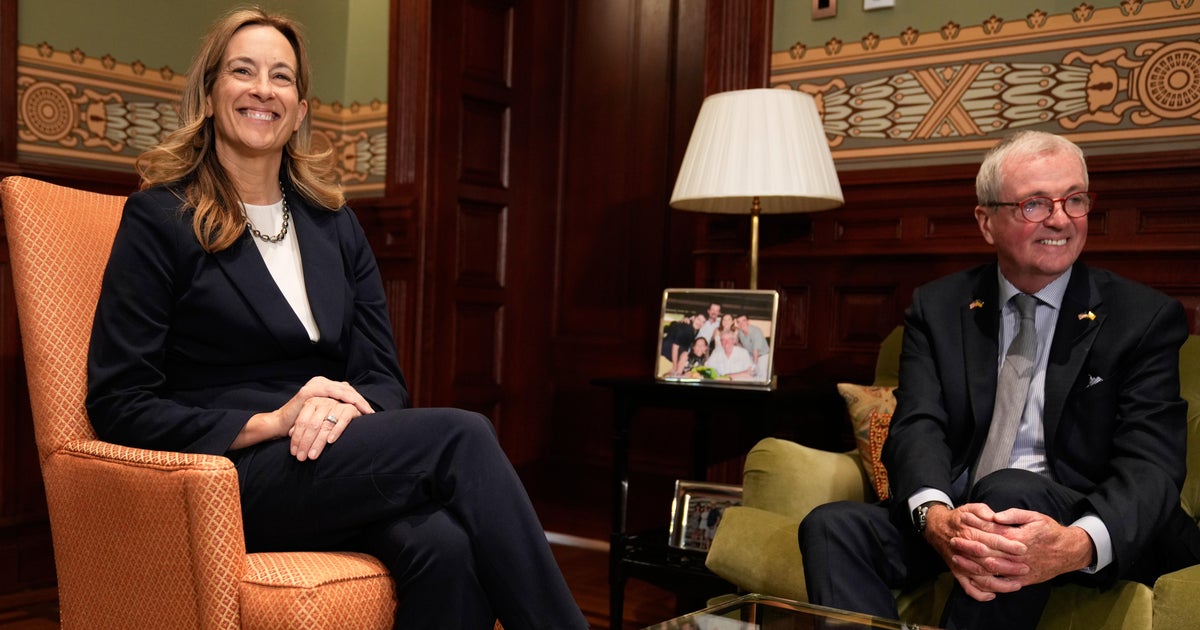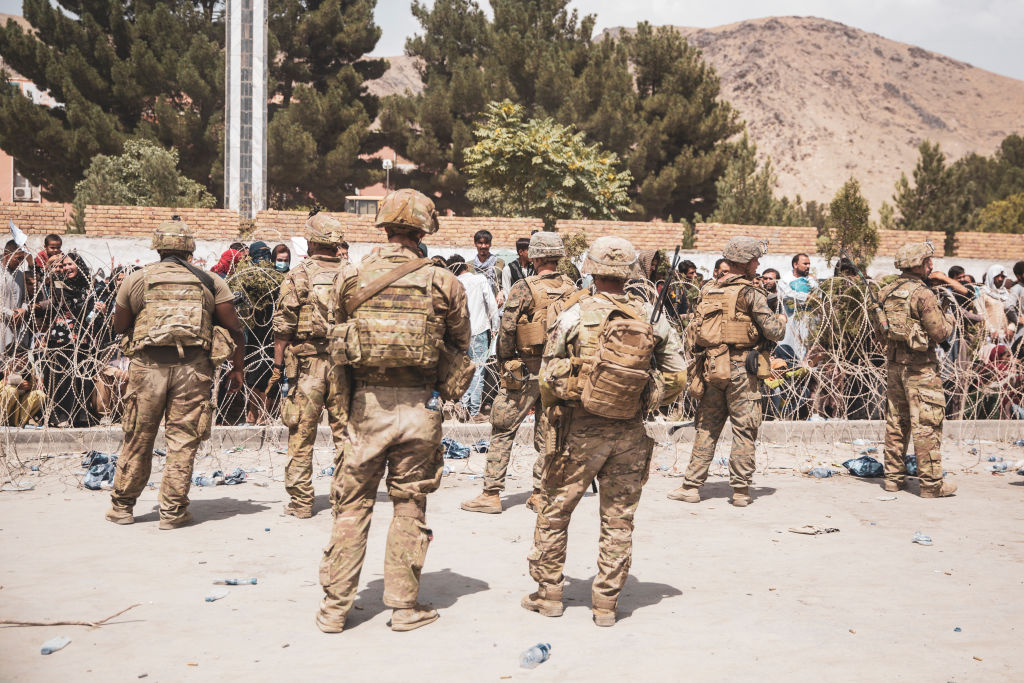Americans in Afghanistan face hard choice of dividing their families
When CBS News first met Angela, an American mother in Afghanistan, she said she was visiting family in August when the government fell and the Taliban came to power. She said repeatedly that she feared for her life.
"This is my passport. I don't know if you can see it," said Angela, holding up her blue American passport to the camera. "We are trapped in Afghanistan. We have been here more than three and a half months."
In late August, as the last U.S. military flights were departing the country and desperation swelled outside the Kabul airport, Angela says she fought for hours to get through the gates before a suicide bomber attacked the crowd. She fled the city and went into hiding.
"We have no way out. We don't know what to do," said Angela, who asked that her real name not be used for security reasons.
Then a group of American strangers banded together and volunteered their time and expertise to get around bureaucratic blocks.
"Angela might not have that much time. Her family might not have that much time," said Army Veteran Brian Kinsella, who first heard about Angela in August while volunteering at a temporary evacuation operation based out of a Washington, D.C., hotel.
Kinsella kept in near-daily contact with Angela.
"To hear her family and their kids screaming in the background, it actually gives me strength to try to figure out a way to get Angela out, to get her family out, and use that as a framework to get many more people out," he said.
In late September, Angela said the U.S. State Department reached her in Afghanistan where she had gone into hiding with her U.S.-born 12-year-old child, her Afghan mother and her Afghan siblings. The State Department said they might have a flight.
"They have called me. They know where I am. They know my situation. I have explained it to them so many times," she said at the time.
But Angela said the State Department told her they could not help her mother or her siblings get on the flight because they aren't American citizens.
"Put yourself in Angela's shoes," Kinsella said, "How easy is it to just say,'"I'm willing to leave because we have a blue passport and you don't?'"
CBS News spoke to a second family in Afghanistan who faced a similar dilemma. The father, a green card holder, said he sent his wife and American born sons back to a nation in the Gulf earlier this year while he stayed behind to help an elderly Afghan parent and an extended family, including a half dozen nieces under the age of 25. The green card holder, who also said he feared for his safety, had worked as a translator for Special Operations for U.S. forces for six years.
With Angela's case stalled, Kinsella enlisted the help of Debevoise and Plimpton, a prominent law firm in New York City.
"We're doing this pro bono," said Floriane Lavaud, an attorney at the firm. "That means that we are giving our time for free to help Angela and her family."
Lavaud and her team compiled a 118-page file so that Angela could apply for emergency entry into the U.S. for the benefit of her Afghan siblings, a process known as humanitarian parole. Her mother had already filed an immigration application to the U.S.
"Because there is no U.S. Consulate in Afghanistan, the people who apply for humanitarian parole actually have to go to a third country," Lavaud said, "to go to a U.S. Consulate in those third countries before they can actually enter the U.S."
Spotty WiFi in Afghanistan cut short the CBS News interview with Angela at the beginning of October as she said all she had left was hope and faith.
"God can hear us," Angela said. "He will support us. He will get us to a safer place."
Recently, all the pieces fell into place after another group of volunteers came together and scrambled a flight out of Afghanistan. The flight was not funded by the U.S. government.
Angela and her family flew to a country in the Middle East where her mother and siblings, with their paperwork filed, can now be vetted by the State Department and Homeland Security.
In response to inquiries from CBS News about Angela's case, the State Department did not address her case specifically or the policy that could divide families like hers. In a statement, the State Department said that American citizens are their priority, and they are pressing the Taliban to let those who want to leave Afghanistan be permitted to do so.
"Our commitment to U.S. citizens, Lawful Permanent Residents, and others to whom we have a special commitment has not changed," the statement said. "U.S. citizens remain our first priority. We are working on a case-by-case basis to assist U.S. citizens and their immediate family members to depart from Afghanistan if and when they decide they wish to leave. We are not providing support for expedited departure or resettlement in the United States for extended family members of U.S. citizens."





